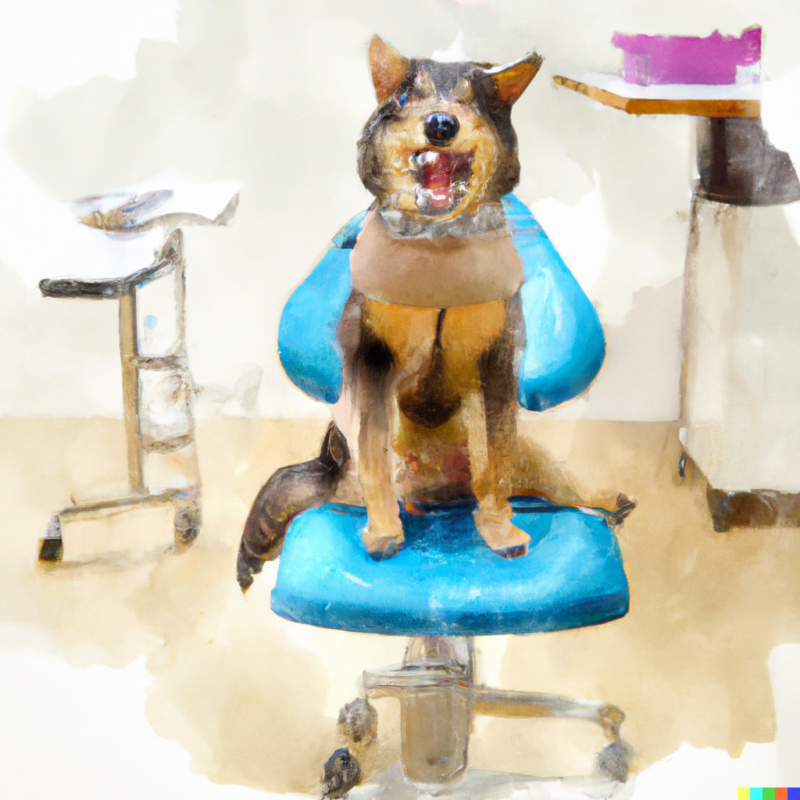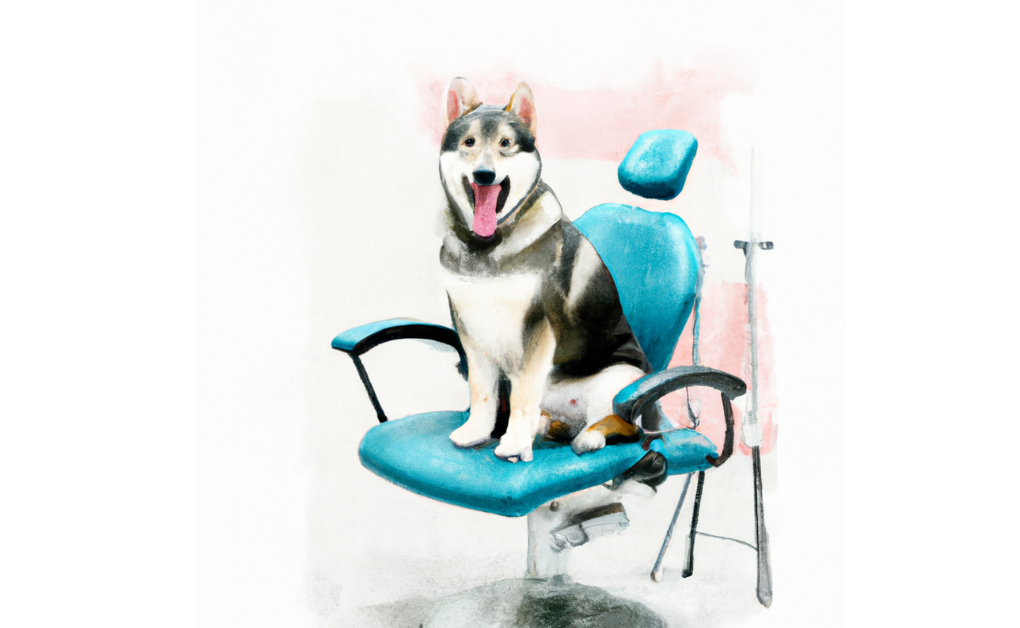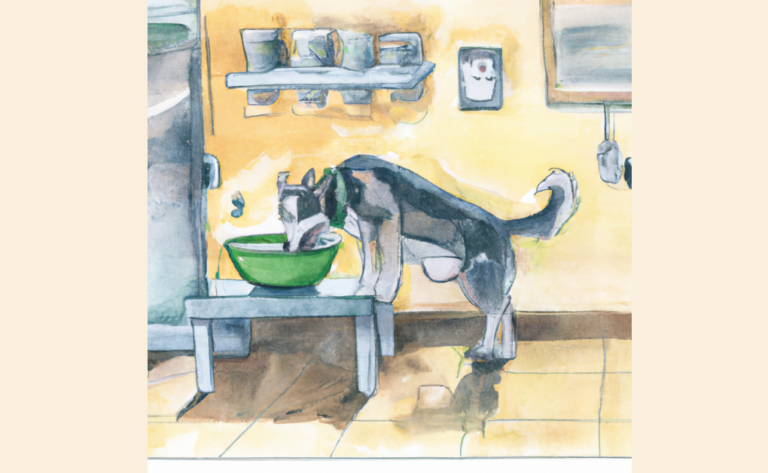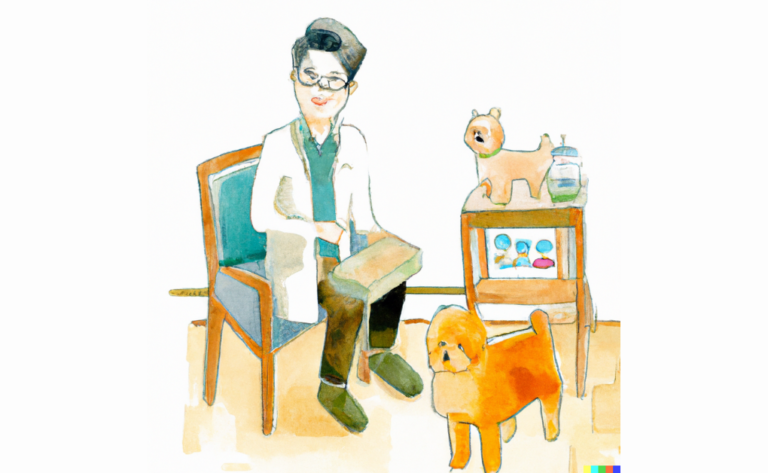The Importance of Routine Dental Care in Dogs
Introduction
For years, Sarah had believed that her dog Charlie’s teeth would take care of themselves, much like his wild counterparts. It wasn’t until Charlie started showing signs of discomfort and bad breath that Sarah realized she might have overlooked an essential aspect of his care: dental hygiene. After consulting her veterinarian, Sarah discovered that routine dental care was crucial for her beloved pet’s overall health.
Routine dental care in dogs is critical because it keeps them healthy and happy. It helps prevent tooth decay, gum disease, and even heart problems.
Dogs’ teeth are just like ours. They need regular brushing and flossing to keep them clean and healthy. But unlike us, dogs don’t brush themselves. So we must be diligent about cleaning our teeth every day.
If you’re not careful, your dog may end up with a mouthful of tartar buildup. Tartar is made up of bacteria and food particles that collect between your dog’s teeth which causes bad breath, tooth loss, and gingivitis (gum inflammation).
Over time, this build-up hardens into plaque. If not treated properly, this can lead to serious health issues such as heart disease, kidney failure, diabetes, and cancer.
Benefits of Routine Dental Care in Dogs

Healthy teeth equal great breath! Dental disease can affect organ function. Retained baby teeth can lead to complications. Caring for your pet’s tooth can save money and prevent future problems. Regular dental visits are essential for your pet’s overall health. Periodontal diseases can lead to serious health problems.
1. Prevent Tooth Loss
Your dog needs regular dental checkups and cleanings. Ask your veterinarian if you need to know how often to brush your pet’s teeth. You’ll want to ensure you brush your dog’s teeth every day, preferably twice daily. Brushing your dog’s teeth helps prevent plaque and tartar buildup on his teeth. This can lead to gum disease, periodontal disease, and tooth loss.
2. Protect Against Infections
Contact your vet immediately if you notice any signs of infection, such as redness around your dog’s gums, swollen glands, fever, or excessive drooling. These symptoms could indicate an oral bacterial infection, which can spread throughout your dog’s body. Oral diseases are painful and uncomfortable for both you and your dog. They can cause your dog to lose appetite, become lethargic, and suffer from diarrhea.
3. Healthy Mouth Means a Healthy Body
Preventing plaque formation is essential to keep your dog’s teeth clean. Plaque buildup can lead to tooth decay and severe health problems such as kidney disease or even death. Dental care is an integral part of your pet’s wellness plan.
4. Prevent Bad Breath
Bad breath isn’t just gross; it’s also unhealthy. Brushing your dog’s teeth regularly keeps plaque from forming on their teeth and prevents bad breath. If you don’t brush your pet’s teeth often enough, they could develop tooth decay and gum disease.
5. Avoid Periodontal Disease and Gingivitis
Gum diseases like gingivitis and periodontal disease can affect your pet’s overall health. They are common problems among dogs. These conditions can make your pet uncomfortable and limit his ability to eat and drink normally. It affects most dogs between the age of two and seven years. This bacterial infection causes gum inflammation and bone loss. If left untreated, it can lead to tooth loss.
Your veterinarian will recommend regular checkups for your dog if he shows signs of periodontitis. These include redness near his eyes, drooling, excessive thirst, and loose stool. In addition, you can help prevent this disease by keeping him away from items such as bones, toys, and anything else that could cause him harm.
Help Them Maintain Good Oral Health
Good oral hygiene is essential to maintaining healthy teeth and gums. But many people neglect this vital aspect of their healthcare routine.
Help your dog maintain good oral hygiene by providing a safe environment. Remove trash and feces from your home. Clean your dog’s cage often. Don’t let your dog lick himself excessively. Instead, bathe him regularly. A bath reduces odor and provides your dog with a pleasant scent.
Finally, teach your dog to accept brushing and flossing. Show him how to hold his head steady so you can easily reach his teeth. Teach your dog to enjoy brushing and flossing by rewarding him with praise and affection.

- Brush Their Teeth Regularly
Brushing your dog’s teeth is an excellent way to prevent plaque buildup. Plaque is a sticky film that collects bacteria and food particles. This film causes tartar, cavities, and bad breath. Brushing removes these deposits and keeps your dog’s teeth clean.
It’s recommended that dogs receive two to three 30-minute brushing sessions each week. However, most dogs prefer to sit alone for a short time. So you can give your dog a treat after each session to avoid boredom.
Use high-quality toothpaste. Look for one without fluoride. Fluoride can stain your pets’ teeth. Instead, choose a paste that contains no abrasives. Abrasives can damage your pet’s gums.
Don’t overdo it. Too much brushing can irritate your pet’s gums and cause bleeding. Keep up with regular brushing.
- Give Them Water
Drinking water is essential for keeping your dog hydrated. Dogs drink between one and four quarts of water daily. So make sure your dog gets plenty of fresh water.
Water is also beneficial for cleaning your dog’s teeth. In addition, drinking water helps rinse away leftover food particles and bacteria.
In addition to drinking water, you should provide your dog with access to fresh water whenever possible. Fresh water is better than tap water because it contains fewer contaminants.
Remember, your dog needs to drink water regularly to maintain oral health. So remember your furry friend’s oral health. Take the time to brush your dog’s teeth and floss him regularly.
- Get Them Checked By a Vet Once Per Year
Regular visits to the vet are necessary to ensure your dog’s overall health. During these appointments, your veterinarian checks your dog’s ears, eyes, nose, throat, skin, and coat. He also examines your dog’s teeth and gums.
A yearly exam ensures your dog doesn’t develop severe medical conditions. Plus, regular veterinary exams allow your vet to catch problems early.
- Be Aware Of Their Needs
When grooming your dog, remember that he doesn’t understand what you’re saying. He won’t respond to commands like “sit,” “stay,” and “down.” Instead, use praise and treats to encourage positive behavior. When you groom your dog, please pay attention to his coat. Is it shedding? Does it look dirty? Are there fleas present? If you see anything out of place, take action immediately.
- Floss Them Every Six Months
Flossing your dog’s teeth helps remove any remaining debris left behind after brushing. In addition, flossing prevents gums from becoming inflamed and infected. Gum infections cause pain, bleeding, and pus.
Most veterinarians recommend flossing your dog’s mouth once per month. However, if your dog has sensitive gums, you should floss him twice monthly.
Watch Out for Bad Breath
Your dog’s teeth are essential because they help him eat, drink, and chew food. They’re also crucial for keeping his mouth clean. So keep them healthy by brushing your dog’s teeth regularly.
Bad breath is another sign of unhealthy teeth. If your dog constantly smells unpleasant, visit your veterinarian right away. Your dog could have a bacterial infection in his mouth. Bacteria produce sulfur compounds that smell foul. Bacterial infections usually occur due to improper dental hygiene. So, take steps to improve your dog’s oral hygiene.
Frequently Asked Questions
Disclaimer: The information provided on this veterinary website is intended for general educational purposes only and should not be considered as a substitute for professional veterinary advice, diagnosis, or treatment. Always consult a licensed veterinarian for any concerns or questions regarding the health and well-being of your pet. This website does not claim to cover every possible situation or provide exhaustive knowledge on the subjects presented. The owners and contributors of this website are not responsible for any harm or loss that may result from the use or misuse of the information provided herein.







